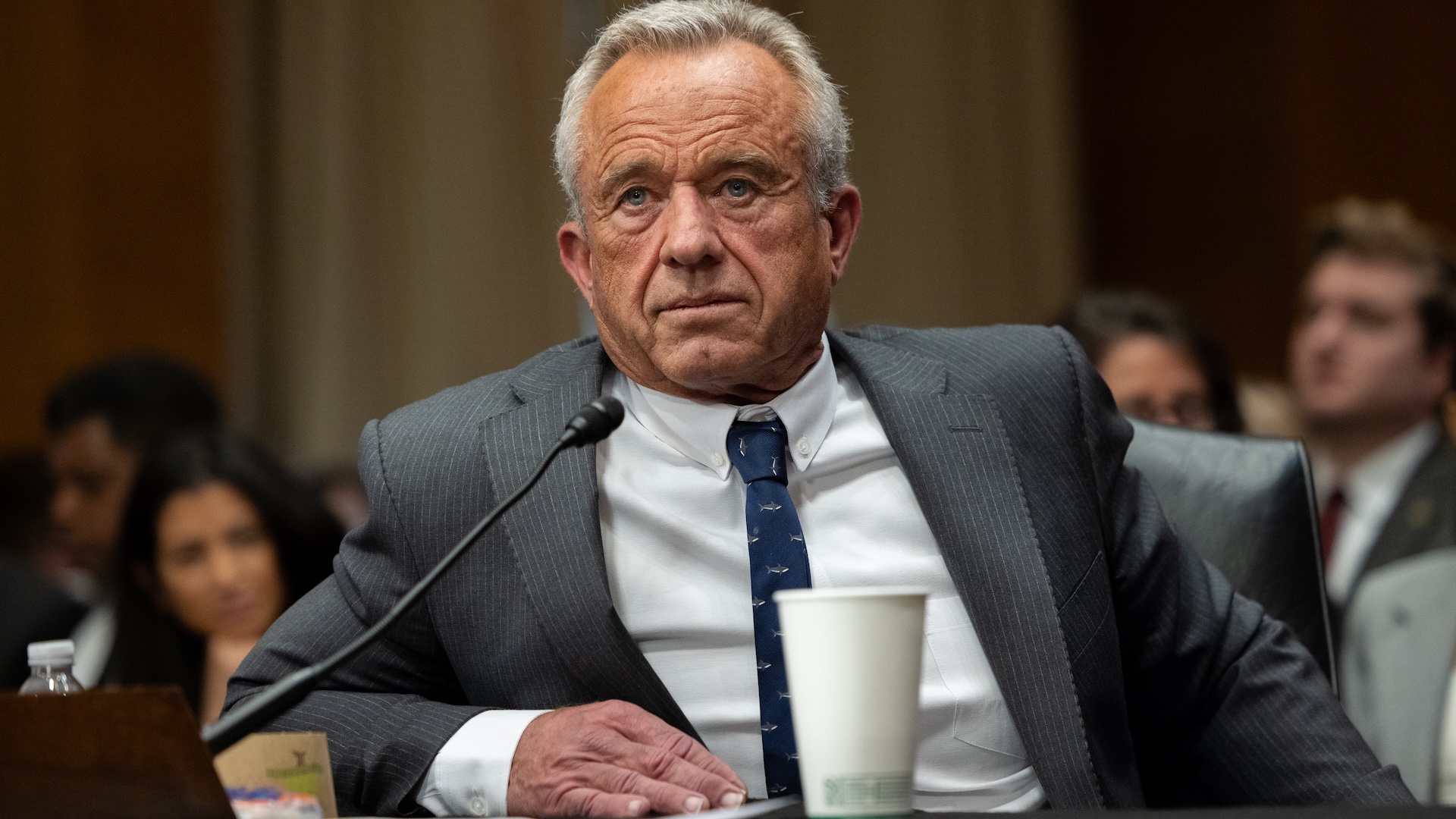For almost 40 years, people who suspect they’ve been harmed by a vaccine have been able to turn to a little-known system called the Vaccine Injury Compensation Program — often simply called the vaccine court.
Health and Human Services Secretary Robert F. Kennedy Jr. has long been a critic of the vaccine court, calling it “biased” against compensating people, slow and unfair. He has said that he wants to “revolutionize” or “fix” this system.
I’m a scholar of law, health and medicine. I investigated the history, politics and debates about the Vaccine Injury Compensation Program in my book “Vaccine Court: The Law and Politics of Injury.”
Although vaccines are extensively tested and monitored, and are both overwhelmingly safe for the vast majority of people and extremely cost-effective, some people will experience a harmful reaction to a vaccine. The vaccine court establishes a way to figure out who those people are and to provide justice to them.
Having studied the vaccine court for 15 years, I agree that it could use some fixing. But changing it dramatically will be difficult and potentially damaging to public health.
Deciphering vaccine injuries
The Vaccine Injury Compensation Program is essentially a process that enables doctors, lawyers, patients, parents and government officials to determine who deserves compensation for a legitimate vaccine injury.
It was established in 1986 by an act of Congress to solve a specific social problem: possible vaccine injuries to children from the whole-cell pertussis vaccine. That vaccine, which was discontinued in the U.S. in the 1990s, could cause alarming side effects like prolonged crying and convulsions. Parents sued vaccine manufacturers, and some stopped producing vaccines.
Congress was worried that lawsuits would collapse the country’s vaccine supply, allowing diseases to make a comeback. The National Childhood Vaccine Injury Act of 1986 created the vaccine court process and shielded vaccine manufacturers from these lawsuits.
Here’s how it works: A person who feels they have experienced a vaccine-related injury files a claim to be heard by a legal official called a special master in the U.S. Court of Federal Claims. The Health and Human Services secretary is named as the defendant and is represented by Department of Justice attorneys.
Doctors who work for HHS evaluate the medical records and make a recommendation about whether they think the vaccine caused the person’s medical problem. Some agreed-upon vaccine injuries are listed for automatic compensation, while other outcomes that are scientifically contested go through a hearing to determine if the vaccine caused the problem.
Awards come from a trust fund, built up through a 75-cent excise tax on each dose of covered vaccine sold. Petitioners’ attorneys who specialize in vaccine injury claims are paid by the trust fund, whether they win or lose.
Some updates are needed
Much has changed in the decades since Congress wrote the law, but Congress has not enacted updates to keep up.
For instance, the law supplies only eight special masters to hear all the cases, but the caseload has risen dramatically as more vaccines have been covered by the law. It set a damages cap of US$250,000 in 1986 but did not account for inflation. The statute of limitations for an injury is three years, but in my research, I found many people file too late and miss their chance.
When the law was written, it only covered vaccines recommended for children. In 2023, the program expanded to include vaccines for pregnant women. Vaccines just for adults, like shingles, are not covered. COVID-19 vaccine claims go to another system for emergency countermeasures vaccines that has been widely criticized. These vaccines could be added to the program, as lawyers who bring claims there have advocated.
These reform ideas are “friendly amendments” with bipartisan support. Kennedy has mentioned some of them, too.
A complex system is hard to revolutionize
Kennedy hasn’t publicly stated enough details about his plan for the vaccine court to reveal the changes he intends to make. The first and least disruptive course of action would be to ask Congress to pass the bipartisan reforms noted above.
But some of his comments suggest he may seek to dismantle it, not fix it. None of his options are straightforward, however, and consequences are hard to predict.

Straight up changing the vaccine court’s structure would probably be the most difficult path. It requires Congress to amend the 1986 law that set it up and President Donald Trump to sign the legislation. Passing the bill to dismantle it requires the same process. Either direction involves all the difficulties of getting a contentious bill through Congress. Even the “friendly amendments” are hard — a 2021 bill to fix the vaccine court was introduced but failed to advance.
However, there are several less direct possibilities.
Adding autism to the injuries list
Kennedy has long supported discredited claims about harms from vaccines, but the vaccine court has been a bulwark against claims that lack mainstream scientific support. For example, the vaccine court held a yearslong court process from 2002 to 2010 and found that autism was not a vaccine injury. The autism trials drew on 50 expert reports, 939 medical articles and 28 experts testifying on the record. The special masters deciding the cases found that none of the causation hypotheses put forward to connect autism and vaccines were reliable as medical or scientific theories.
Much of Kennedy’s ire is directed at the special masters, who he claims “prioritize the solvency” of the system “over their duty to compensate victims.” But the special masters do not work for him. Rather, they are appointed by a majority of the judges in the Court of Federal Claims for four-year terms — and those judges themselves have 15-year terms. Kennedy cannot legally remove any of them in the middle of their service to install new judges who share his views.
Given that, he may seek to put conditions like autism on the list of presumed vaccine injuries, in effect overturning the special masters’ decisions. Revising the list of recognized injuries to add ones without medical evidence is within Kennedy’s powers, but it would still be difficult. It requires a long administrative process with feedback from an advisory committee and the public. Such revisions have historically been controversial, and are usually linked to major scientific reviews of their validity.
Public health and medical groups are already mobilized against Kennedy’s vaccine policy moves. If he failed to follow legally required procedures while adding new injuries to the list, he could be sued to stop the changes.
Targeting vaccine manufacturers
Kennedy could also lean on his newly reconstituted Advisory Committee on Immunization Practices to withdraw recommendations for certain vaccines, which would also remove them from eligibility in the vaccine compensation court. Lawsuits against manufacturers could then go straight to regular courts. On Aug. 14, 2025, the Department of Health and Human Services may have taken a step in this direction by announcing the revival of a childhood vaccine safety task force in response to a lawsuit by anti-vaccine activists.
Kennedy has also supported legislation that would allow claims currently heard in vaccine court to go to regular courts. These drastic reforms could essentially dismantle the vaccine court.
People claiming vaccine injuries could hope to win damages through personal injury lawsuits in the civil justice system instead of vaccine court, perhaps by convincing a jury or getting a settlement. These types of settlements were what prompted the creation of the vaccine court in the first place. But these lawsuits could be hard to win. There is a higher bar for scientific evidence in regular courts than in vaccine court, and plaintiffs would have to sue large corporations rather than file a government claim.
Raising the idea of reforming the vaccine court has provoked strong reactions across the many groups with a stake in the program. It is a complex system with multiple constituents, and Kennedy’s approaches so far pull in different directions. The push to revolutionize it will test the strength of its complex design, but the vaccine court may yet hold up.
This edited article is republished from The Conversation under a Creative Commons license. Read the original article.

